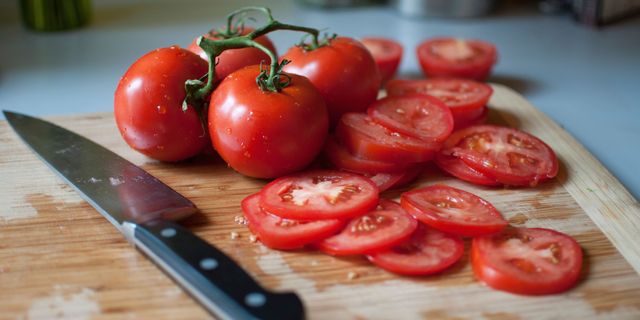Tomatoes are the quintessential summer produce. They're sweet and juicy, refreshing and crisp — that is, until you get one that's too ripe, and it turns to mush. (That goes double for avocados.) But scientists, who've apparently been afflicted with this tragedy one too many times, have been working on a way to combat this.
The Wall Street Journal reports that by changing the DNA makeup of tomatoes, researchers were able to target the gene responsible for pectate lyase, the enzyme at fault for softening your ruby red tomatoes by breaking down cell walls.
After said enzyme was toyed with, the tomatoes showed no signs of wrinkling after two weeks. That's miles ahead of your conventional tomato that might get squishy in just a couple of days. There is a slight catch here, though: The tomatoes were produced in the U.K., where you can't consume genetically modified produce. So the researchers couldn't entirely speak to its taste.
Plus, a plant molecular biologist from the USDA told the Journal that tomato producers would struggle to "justify the cost of going through the regulatory hoops" to get them into grocery stores. Instead, the research will likely be used as a rough outline that can applied to crossbreeding, a practice that's more generally accepted.
[h/t Wall Street Journal













